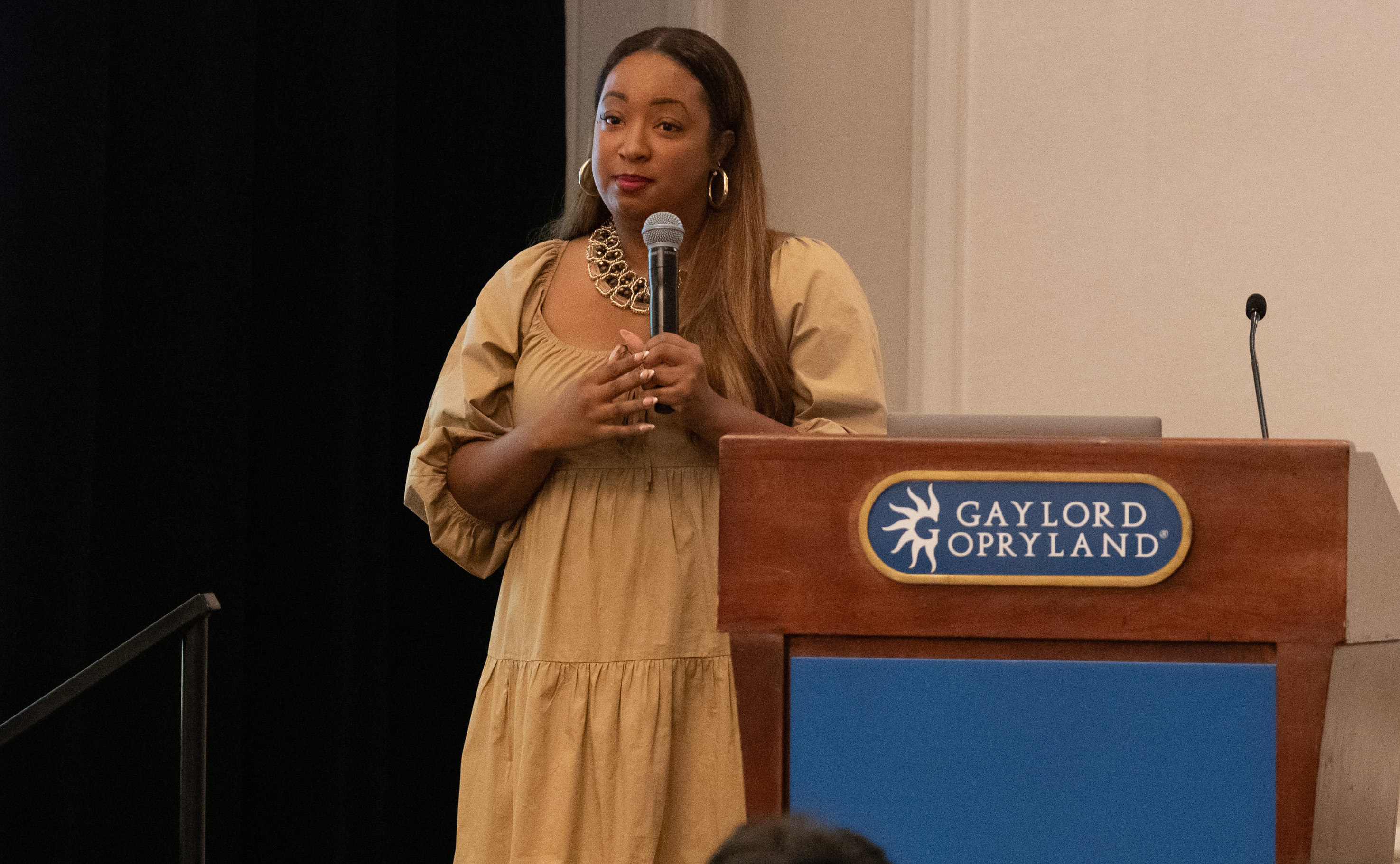Alex Ebanks on the Importance of Writing — and Having Fun
By John Elsasser
February 2024
Alex Ebanks is the vice president of communications at Essence Ventures, overseeing all executive, external and internal communications for the private equity company that aims to empower, connect and give ownership to Black communities.
Before joining Essence, Ebanks led consumer PR and multicultural comms on the global communications team for Xbox at Microsoft. She also served in various PR roles at The Coca-Cola Company for five years.
Here, she talks with Editor-in-Chief John Elsasser about the start of her PR career, the lost art of writing and the importance of having fun with work.

You graduated from Spelman College with a degree in English. While there, you served as president of The Black Public Relations Student Society. When did your interest in PR/comms happen?
My interest in public relations happened the summer after my first year of college when I had the opportunity to shadow a family member who was working at a PR agency. I loved the hustle and bustle of planning events and getting media to cover and attend.
During that summer, I started seeking out other PR professionals to conduct mock interviews and gain insights into the field. Spelman doesn’t necessarily have a communications department. Still, one of the most important things that I learned from speaking with professionals in the industry is how essential writing is. I then began a keen focus on setting my sights on the English major to pair the skill of writing with my passion for public relations.
Did you have a dream job in mind while growing up?
I didn’t necessarily have a dream job in mind while growing up, but I knew I wanted to do something that allowed me to engage and interact with many people.
As a college student, I completed seven communications-related internships during the school semester and over the summers to explore various areas of the PR profession. I learned all the ways I could interact with others through the work I was tasked with and the work I was producing.
You have an MBA from the University of Georgia. Why did you decide to pursue an advanced degree? What advice do you have for others thinking of obtaining an MBA?
Securing an MBA was always on my list of goals, as I never wanted to get to a place in my career where I was told that I couldn’t achieve a professional goal at work due to not having an advanced degree.
My advice for others considering obtaining an MBA is to make sure that it is the right decision for you and at the right time.
I didn’t apply for my MBA until I had over a decade of work experience under my belt. And I am so happy that I waited, as I was genuinely able to pair and apply real-world examples and practices to what I was learning in the classroom, which made for a more fruitful learning experience.
What’s an essential skill that communications pros need today?
Number one is writing. Oftentimes, we focus so closely on the media and building those relationships, which are also key. But we forget how important writing is, whether it’s an email, a press release or a pitch. Those components seem to have gotten a little lost over the past few years, but they’re still critical in public relations.
This is our annual writing and storytelling issue. Why do you think people have forgotten the importance of writing over the past few years?
I think people have forgotten the importance of writing over the past few years, given how accessible social media is and how quickly people can get their messages across to broad audiences.
I still believe that writing is essential within any field — especially with communications. It can be as simple as an email that is well-written and informative and can land a pitch to a reporter to help to secure the perfect press hit!
What qualities do you look for in your team members?
I look for people who are great to be around and are great communicators. The biggest thing about public relations is the networking aspect — how you network with media, peers and people of all levels around you.
How has mentoring aided your career, and what’s your advice for PR pros seeking mentors?
When I look for a mentor, or if someone’s looking for one, it’s definitely a person who is transparent. I call my mentors all the time and say, “Hey, I need a quick gut check on this. What do you think?” And then you have to be OK with the feedback that’s given. You’re not always going to hear what you want to hear.
But that feedback is valuable. And knowing it’s coming from a good place — that’s helped me over the years, both from mentors and when I mentor my mentees. They always know they can call me. I’m going to give them honest feedback and make sure they succeed in their next endeavor.
What’s the best career advice you have ever received?
Have fun with PR. Make sure you’re making great connections. Bring your creativity to the table. Don’t take it too seriously. We aren’t heart surgeons, but we are telling great stories.
Knowing what you know now, what would you tell your younger self if you could return to the start of your career?
I would tell myself to start at a PR agency and spend at least three to five years there. It was my second job out of college. You learn so many great skills starting at a PR agency before going in-house — managing multiple projects at one time and connecting with others. In-house [public relations] always seems the place to be, but at agencies, you can spread that creativity, utilize your skills [and pull] together awesome client campaigns.



